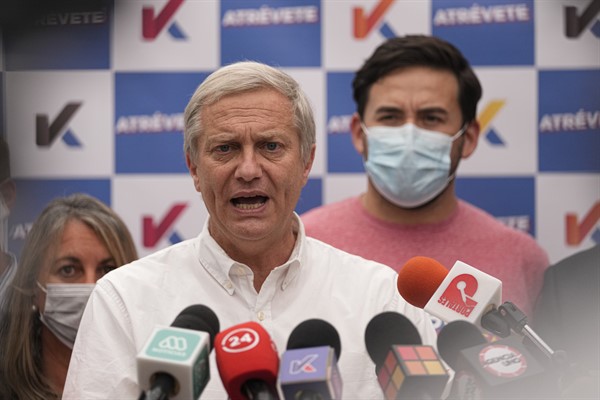In the leadup to Nov. 7’s sham election in Nicaragua, incumbent President Daniel Ortega’s crackdown on the opposition and imprisonment of his most viable challengers garnered a good deal of attention. But the Nicaraguan election was only the first in a series of crucial political contests taking place in the region this month. By the time December begins, the path ahead for nearly half a dozen Latin American countries may well have been redrawn.
Beyond Nicaragua’s widely criticized parody of democracy, the continent will see pivotal presidential elections in Chile and Honduras, the winners of which could take these countries in significantly different directions. At the same time, key local and legislative polls are scheduled in Argentina and Venezuela, with the potential for a very consequential power shift in the former.
First, to Chile, where the race to succeed the just-impeached President Sebastian Pinera has taken an unexpected turn. In July, the country’s main left- and right-leaning coalitions held primary elections, and the results alleviated fears that the coronavirus pandemic, coming on the heels of massive social protests in 2019, would lead voters to support candidates on the far left or far right. Instead, the left rejected the Communist Party’s radical candidate, Daniel Jadue, in favor of the fairly far-left but less radical Gabriel Boric, a 35-year-old former student activist from the leftist Broad Front coalition. On the right, voters chose Sebastian Sichel, a 43-year-old candidate who until just a few years ago belonged to the center-left Citizens party.

